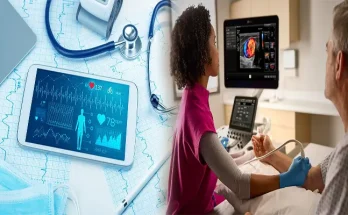In recent years, the healthcare industry has undergone a monumental shift towards digital transformation, with electronic health records (EHR) playing a pivotal role in improving patient care, enhancing operational efficiency, and driving better healthcare outcomes. As hospitals transition from traditional paper-based systems to electronic health records, they stand to gain a multitude of benefits that can revolutionize the way they deliver care and manage patient information. In this article, we will explore the significant advantages of electronic health records for hospitals and the transformative impact they can have on the healthcare landscape.
1. Enhanced Patient Care and Safety
One of the primary benefits of electronic health records for hospitals is the ability to improve patient care and safety. EHR systems provide healthcare providers with immediate access to a patient’s comprehensive medical history, including past treatments, medications, and allergies. This quick and accurate access to patient information enables physicians to make well-informed decisions, reduce medical errors, and ensure that patients receive the most appropriate and timely care.
2. Improved Accessibility and Interoperability
Electronic health records facilitate seamless information sharing and interoperability among healthcare providers, allowing for a more coordinated and integrated approach to patient care. EHR systems enable authorized healthcare professionals to access patient records across different hospital departments, clinics, and even healthcare facilities, ensuring that critical information is readily available regardless of the patient’s location. This improves care coordination and enables a more holistic view of the patient’s health history.
3. Increased Efficiency and Cost Savings
By transitioning to electronic health records, hospitals can streamline their administrative processes, reduce paperwork, and decrease the reliance on physical storage space for medical records. This not only increases operational efficiency but also leads to significant cost savings associated with paper storage, retrieval, and transcription. Additionally, EHR systems can automate routine tasks such as appointment scheduling, billing, and coding, allowing healthcare staff to focus more on patient care and less on administrative burdens.
4. Advanced Clinical Decision Support
Electronic health records feature built-in clinical decision support tools that provide healthcare providers with valuable alerts, reminders, and evidence-based guidelines at the point of care. These tools can help physicians identify potential drug interactions, recommend appropriate treatment protocols, and ensure adherence to best practices and clinical guidelines, ultimately leading to improved patient outcomes and quality of care.
5. Data-Driven Insights and Analytics
By leveraging electronic health records, hospitals can harness the power of data analytics to gain valuable insights into population health trends, treatment outcomes, and disease management. EHR systems can aggregate and analyze large volumes of patient data, enabling healthcare organizations to identify areas for improvement, track performance metrics, and personalize treatment plans based on evidence-based practices.
The adoption of electronic health records represents a transformative shift in the way hospitals manage patient information and deliver care. By embracing the benefits of EHR systems, hospitals can enhance patient care, improve operational efficiency, and drive better healthcare outcomes. As the healthcare industry continues to evolve, electronic health records will play a vital role in shaping a more connected, data-driven, and patient-centric approach to healthcare delivery, ultimately leading to improved patient experiences and outcomes.





